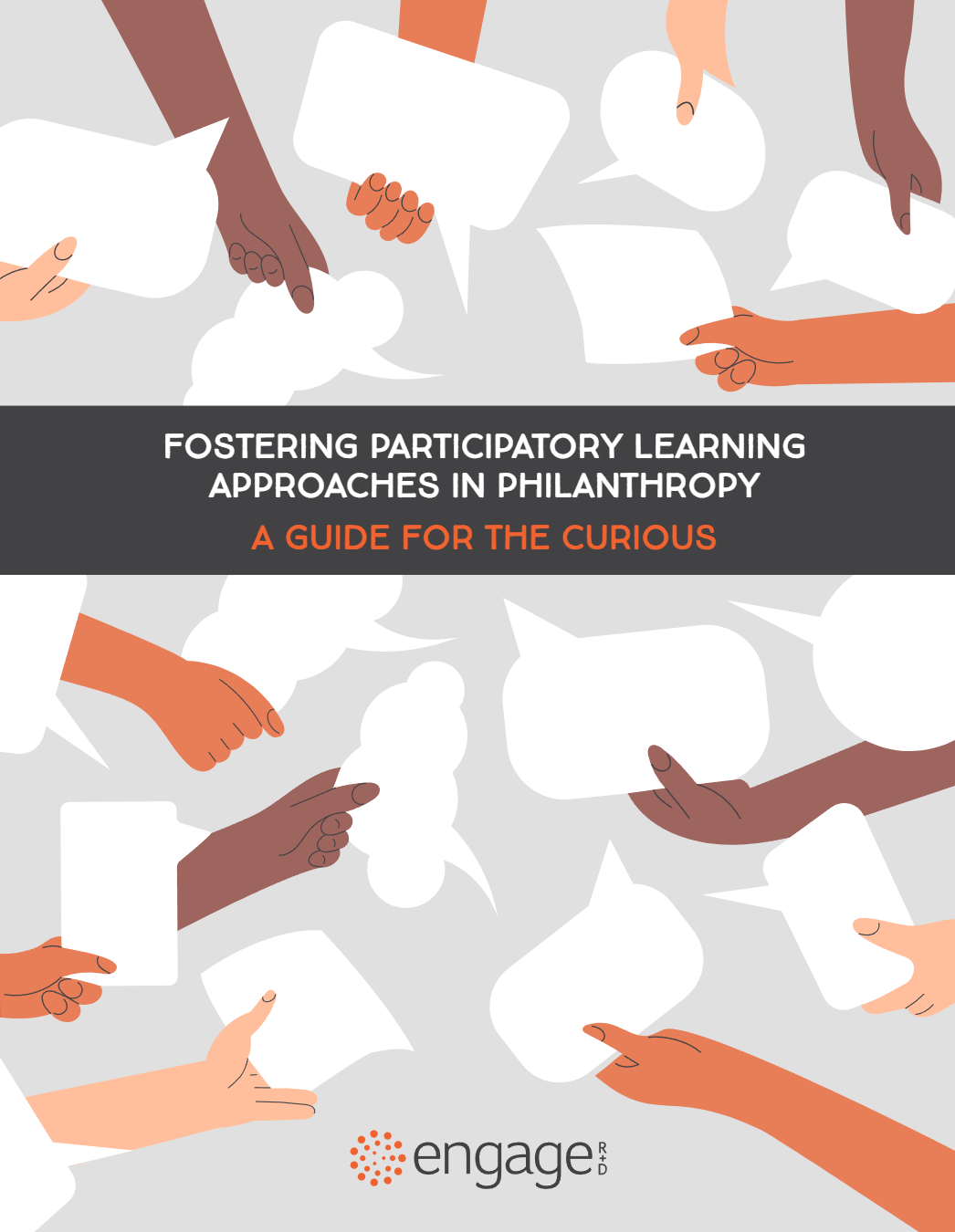Towards Broadening Learning in Philanthropy: Tools and Resources for the Curious
/Since our inception in 2017, Engage R+D has played a significant role in advancing knowledge to strengthen evaluation and learning in philanthropy. Through partnering with funders, peer colleagues, and intermediaries, we have produced field-facing resources that blend expertise and guidance with tangible tools—with a clear orientation toward action.
As we celebrate our seventh anniversary in 2024, we’d like to take time to reflect on what we’ve learned. Many of the topics covered in these field resources—such as creating networks for social change, using knowledge to influence philanthropic practice and strategy, practicing equity-focused evaluation, and adapting grantmaking processes during times of crisis—continue to resonate with funders and evaluators. We look forward to resharing these field resources with you throughout the year and invite you to reflect with us on their continued applicability to our sector.
Our newest field resource, which we are publishing today, is Fostering Participatory Learning Approaches in Philanthropy: A Guide for the Curious. The Guide is the first comprehensive resource for funders that focuses on practical tools, tips, and examples for integrating such approaches into a foundation’s practice. The Guide draws on the collective insights and experiences of foundation staff, grant recipients, and learning consultants, and was supported by the Blue Cross and Blue Shield of North Carolina Foundation, the California Health Care Foundation, and the Ewing Marion Kauffman, Conrad N. Hilton, James Irvine, and Walton Family Foundations.
The inspiration for this Guide lies in the realization that those most affected by social issues hold essential insights into creating effective solutions. Participatory learning—which we define as the purposeful inclusion of grantees and community members who have lived expertise in learning activities supported by foundations. This engagement is designed to shift decision-making power to these individuals, thereby fostering more equitable and impactful approaches. By integrating grantee and community input more meaningfully, and addressing the limitations in traditional feedback loops, foundations can better align their work with the lived realities of those they aim to serve.
In the coming months, we will spotlight tools and resources from the Guide as a way to help foundation staff explore, enhance, and sustain participatory learning practices. These tools and resources include:
An Organizational Readiness Assessment for participatory learning approaches
A Reader Reflections Tool to make the case for participatory learning
Guidance on navigating tensions around participatory learning
A Checklist with tips on how to compensate grantees and community participants fairly in learning activities
Reflection Questions to help foundations sustain momentum with participatory learning
We invite you to engage with these tools and resources, individually and with your teams and colleagues, and to share your reflections with us. And we welcome your input to collectively strengthen participatory learning practices across the philanthropic and learning and evaluation sectors.
As we mark this seventh anniversary milestone, we extend our deepest gratitude to all of our clients, field partners, and the broader community for your support and collaboration. We look forward to continuing to drive positive change across philanthropy and evaluation, for the betterment of our communities and a more just and equitable world at large.



